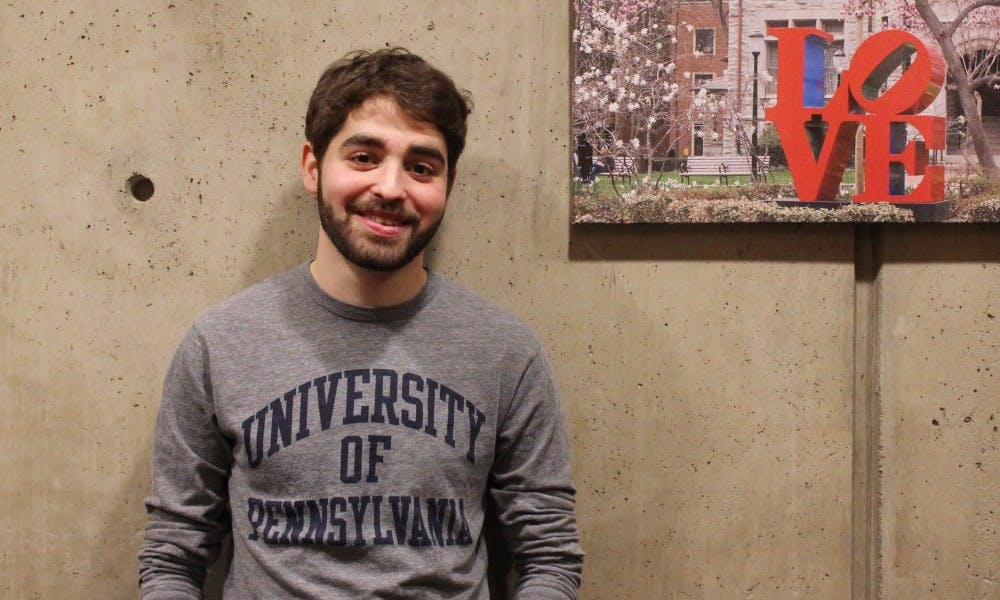Feb. 28 was a big day for Science Leadership Academy’s debate team and their coach, College and Wharton sophomore Andrew Gegios. The team will be sending its first pair to a national tournament.
Although he is busy deliberating on school issues with administrators at University Council, chatting in Arabic or hanging out at the Sigma Nu chapter house, few people may be aware that Gegios is deeply committed to a cause outside of Penn’s campus: coaching a debate team at Philadelphia high school, Science Leadership Academy.
Penn for Youth Debate is a club dedicated to working with debate teams at Philadelphia schools.
“Our organization provides student volunteer coaches for these debate programs so that students interested are able to engage academically outside of the classroom. We teach students argumentation skills, research skills and logic through these debates,” said Vice President of Penn for Youth Debate and College sophomore Evan Cernea, who is also an associate copy editor at The Daily Pennsylvanian.
Gegios works with students, most who have no previous experience with debate, teaching them to compete in various speech and debate events. Penn for Youth Debate requires Penn students to spend an hour a week with their respective teams, but Gegios took his involvement with his team far above and beyond the requirement.
Gegios runs four hours of debate practice per week at SLA and attends weekend tournaments with members of the team. However, the team’s increased dedication to debate has less to do with his own ambition andmore to do with that of his students, Gegios said.
The SLA debate team had 12 students last year when Gegios began coaching there as a freshman. This year, the program has 30 students. Under his leadership, the debate team quickly became what he describes as the school’s “winningest team,” outperforming most of the athletic teams, he said. The team was such a success that this year the high school decided to make debate a class, which will be taught by one of the school’s teachers, so that students can practice during the school day for academic credit.
Gegios’ involvement with this debate team had very much to do with his own impactful experience on his high school debate team in Milwaukee, Wis. Gegios joined the debate team his freshman year of high school and eventually was ranked number one in Wisconsin and in the top 30 nationally by the National Speech and Debate Association.
“I remember when I was a freshman and my coach told me about nationals. I never pictured myself there,” Gegios said. “I thought maybe that was never going to happen, but that I would try really hard.” He went to nationals in his sophomore year.
However, for Gegios, the challenge of pushing through failure was an important part of his learning experience.
“[Debate] gave me a lot of confidence. It tore me down at the very beginning — I felt like I was awful, like I couldn’t speak, unprofessional,” Gegios said. “But it turned me into someone I’m really happy to be.”
Although he did not want to commit to joining the Penn debate team, Gegios said he joined Penn for Youth Debate because he wanted to give back to the community. He wanted to make sure other students could have the same opportunity to debate like he did in high school.
“I loved it so much because it was like my community,” Gegios said. “It really changed my life.”
The SLA team travels to weekend tournaments more often than most Penn for Youth Debate teams, so they have to look past club funding and get more creative in looking for financial support, as costs can pile up quickly.
Since Gegios started coaching, the team joined three debate leagues, each of which has a fee. Additionally, there are entry fees for all of the tournaments on top of the fee for transportation.
One alternate source of funding has been the After School Activities Partnership, an organization that supports after-school activities for students in the Philadelphia School District.
“Students have to pay out of pocket [for transportation], but we try to limit that as much as possible. Sometimes I just pay out of pocket for an Uber or a cab as if I were just going somewhere for a weekend because it’s too much to ask them to spend that extra money,” Gegios said. “Funding is a struggle, and it’s something we are working on.”
Gegios’ own rocky start in the debate world helps him work through challenges with students on the SLA team. Similarly to the team he now coaches, Gegios’ high school team started out at local tournaments and then became a national team.
SLA has had an incredible year so far, not only succeeding in local tournaments, but also competing on the national level. This year’s highlights includeteams that made it to the semi-finals at the George Mason University national circuit tournament, double-octofinals at Penn’s own Liberty Bell Classic tournament and elimination rounds at the Princeton University national tournament. Several members of the team also received prestigious awards from the National Speech and Debate Association.
However, getting the team off the ground was far from easy, since debate is a competition with a “high learning curve,” Gegios said.
“When teams start out, they might lose all their rounds and that’s what happened to me, that’s what happened to almost everyone on our team, and so you’ll want to quit, you feel stupid,” he said.
However, for Gegios, seeing growth in his team makes the entire experience that much more rewarding. His favorite part about being a coach is “seeing them grow and seeing them get so much better — seeing them when they work hard and they finally win some rounds.”



